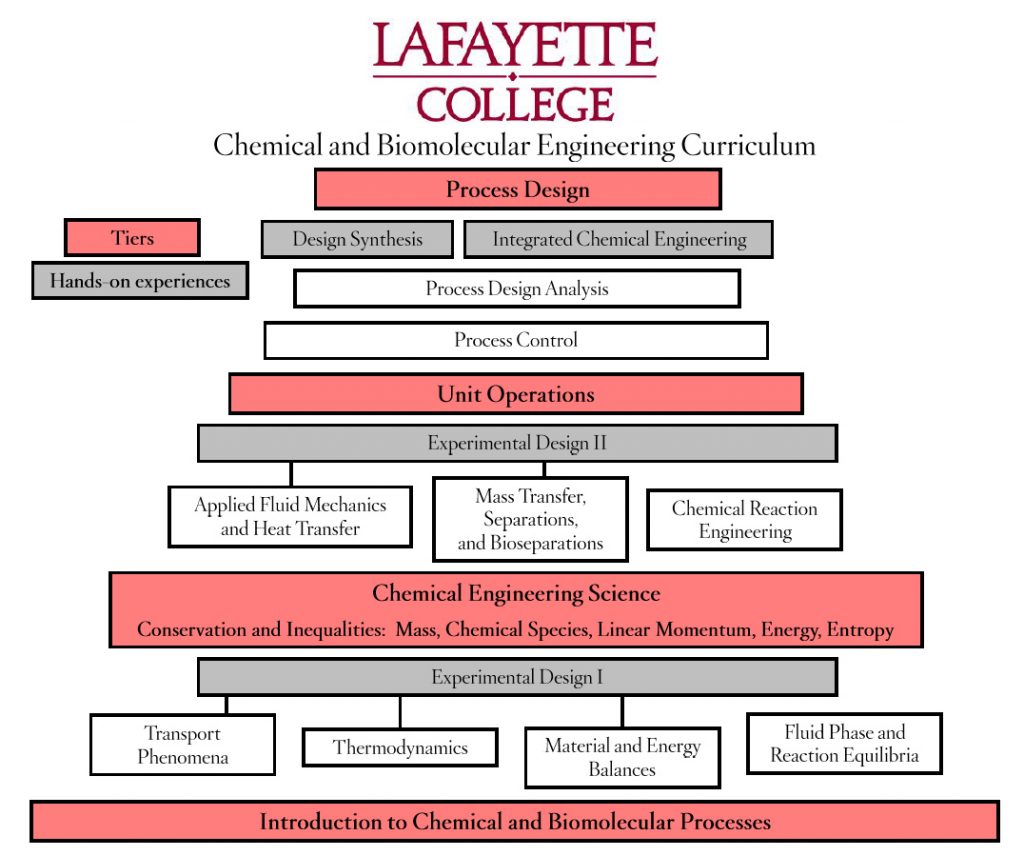Curriculum
Chemical engineers have the responsibility to discover and implement new products and processes that are useful and economical.
The chemical engineering profession has evolved in concert with the technological landmarks of the last century – from petroleum refining at the beginning of the last century to the biotechnology and biomedical developments, innovations in digital communications and microelectronics, to nanotechnology. These changes have driven chemical engineering from macroscopic to microscopic to nano-scale and eventually toward molecular dimensions.
Although chemical engineers remain actively engaged in the synthesis of known knowledge into large scale processes-traditionally referred to as “scale-up” – the new revolutions in processing and products are involving them in the creation of new technologies at increasingly shrinking dimensions – “scaling down.” The need for exploitation of new energy and raw materials sources and the increased emphasis on the life sciences offers new opportunities for chemical engineers in diverse industries such as biological, medical, and pharmaceutical firms, and presents new challenges.
At Lafayette, students are exposed to a combination of rigorous engineering fundamentals and hands-on learning experiences, equipping them to handle these challenges.
